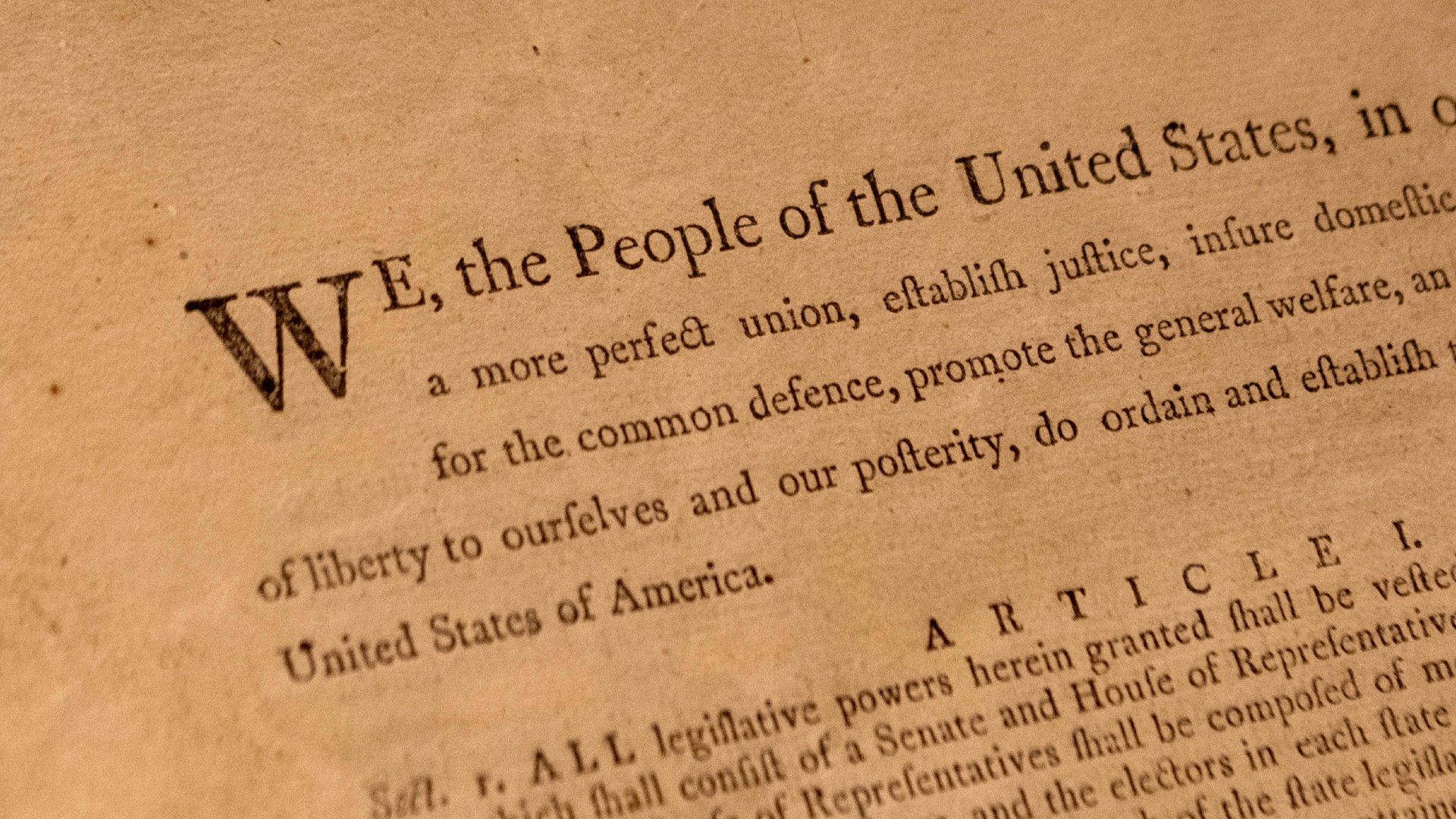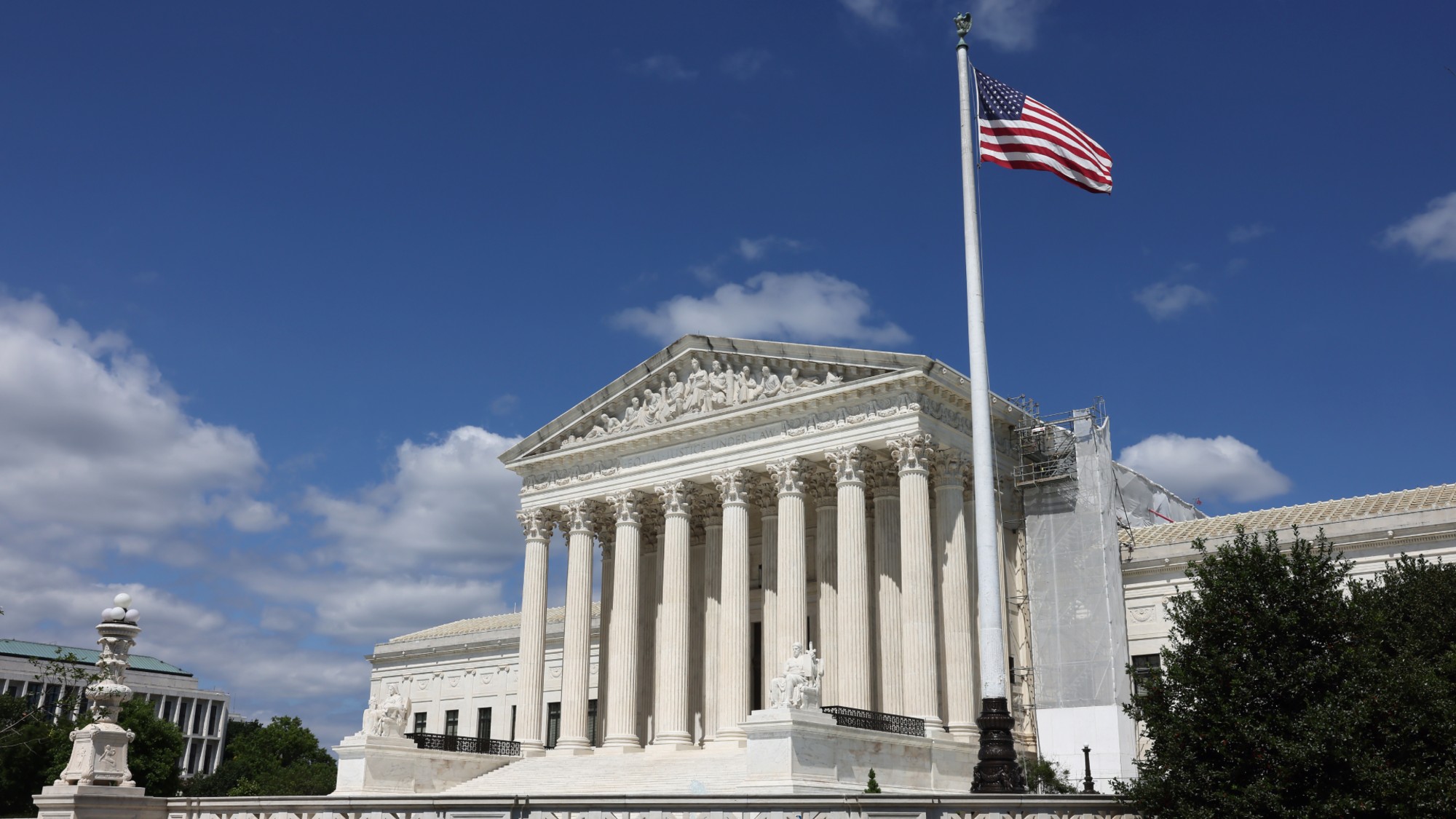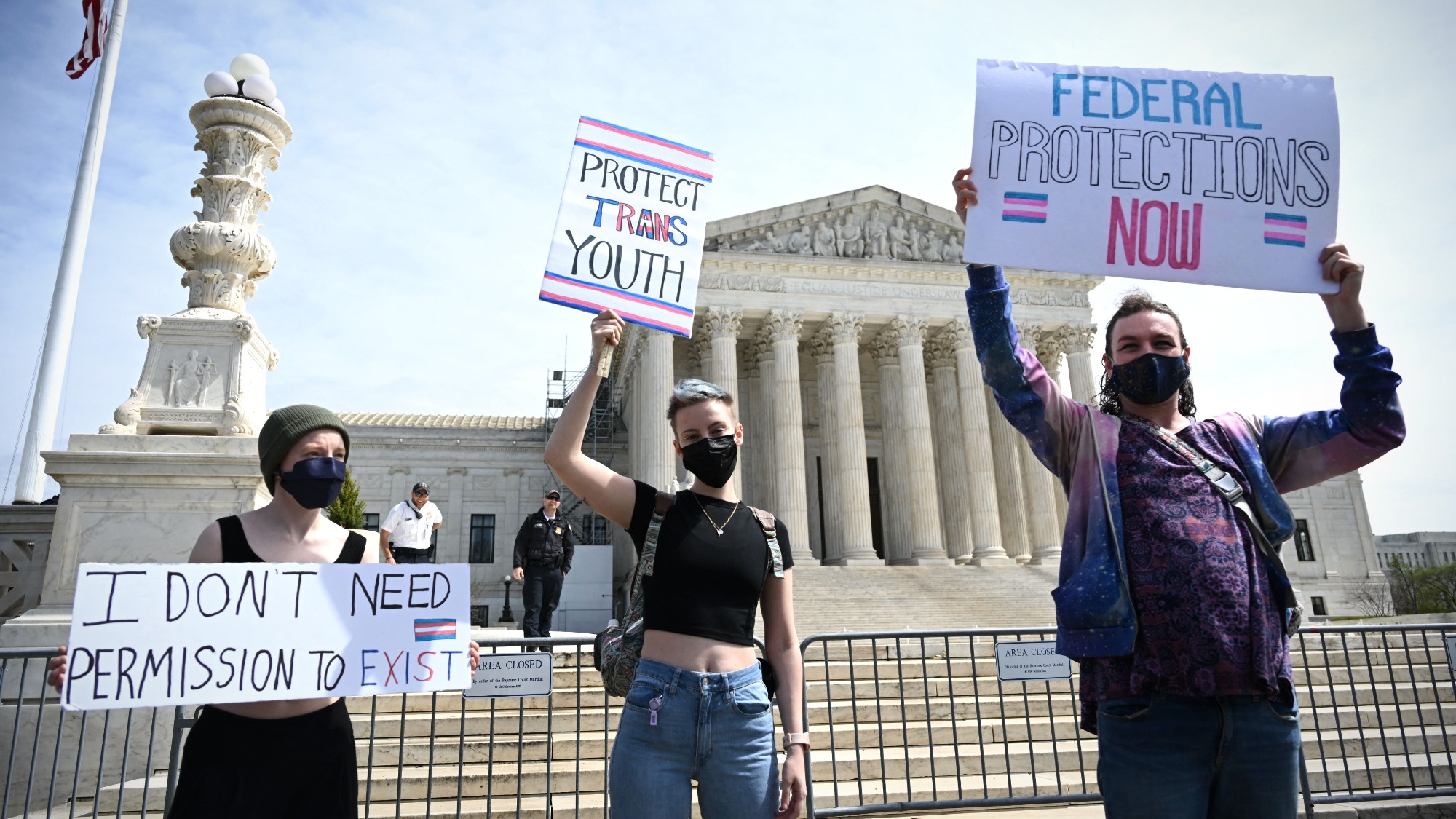The pros and cons of a written constitution
Clarity no substitute for flexibility, say defenders of Britain's unwritten rulebook

A free daily email with the biggest news stories of the day – and the best features from TheWeek.com
You are now subscribed
Your newsletter sign-up was successful
Debate over the British government's controversial Rwanda bill has once again raised the question of whether a written constitution would help or hinder the process to allow the deportation of illegal migrants.
A written constitution is a "comprehensive" and "codified" document that "serves as the supreme law of the land, establishing the rights and responsibilities of the government", said The Lawyer Portal. An unwritten constitution "serves the same purpose, but is based on a collection of laws, customs and precedents" that have evolved over time.
The vast majority of countries in the world have some form of written constitution, with notable exceptions including New Zealand, Saudi Arabia, Israel and, of course, the United Kingdom.
The Week
Escape your echo chamber. Get the facts behind the news, plus analysis from multiple perspectives.

Sign up for The Week's Free Newsletters
From our morning news briefing to a weekly Good News Newsletter, get the best of The Week delivered directly to your inbox.
From our morning news briefing to a weekly Good News Newsletter, get the best of The Week delivered directly to your inbox.
Pro: clarity
The late Lord Chief Justice, Lord Bingham, said of the UK that "constitutionally speaking, we now find ourselves in a trackless desert without map or compass". This is the "precise problem codification addresses", said Gopal Subramanium in Prospect. "When a constitution is codified, we know what it says. Each organ of the state – the legislature, the executive and the judiciary – has a clearer idea of the breadth of its powers" and the relations these organs have with each other and with citizens are "more easily discernible".
By contrast, unwritten constitutions are "open to ambiguity and can be subject to numerous interpretations", said the BBC. This lack of clarity has "exacerbated recent political crises in the UK", said Sionaidh Douglas-Scott on the UCL's Constitution Unit blog. The legal status of referendums, for example, has never been properly set out, leading to the seemingly endless constitutional crises in the years following the vote to leave the EU.
Con: inflexibility
Supporters of an unwritten system like the UK's, which is made up of a vast array of different laws, customs and conventions developed over centuries, claim it offers "greater flexibility" and can "evolve and adapt to reflect changes in society", said the BBC.
Walter Bagehot, in his book The English Constitution that was first published in 1867, argued it was the very provisional nature of our constitutional arrangements that made them fit for purpose compared, for example, to the strict codification of the US constitution.
A free daily email with the biggest news stories of the day – and the best features from TheWeek.com
In the UK, the flexibility afforded by an unwritten constitution has come to be seen as an "advantage", agreed UCL's Constitution Unit, enabling the removal of hereditary peers from the House of Lords, the introduction of the Human Rights Act, devolution to Scotland, Wales and Northern Ireland, and the creation of the Supreme Court.
Pro: educative function
One "commonly cited benefit" to states possessing written constitutions is that such devices perform an "educative function, because citizens can easily consult and reference the documents", said Brian Christopher Jones in The Atlantic. Jones' recent book, "Constitutional Idolatry and Democracy", compares the respective merits of the UK and US systems.
The American constitution is easier for lawmakers, judges and perhaps most importantly citizens to understand. US schoolchildren grow up learning parts of it by heart. It is widely available online and its physical form consistently lands on best-seller lists.
Being able to point to a constitution and assert its values is "empowering", agreed Subramanium, citing his own experience in India in which generations "understand the workings of its constitution, learning their rights and asserting them against successive governments".
Con: judiciary over parliament
Parliamentary sovereignty is commonly regarded as the "defining principle" of the British constitution, claimed UCL's Constitution Unit, and without a written constitution in place, statutes are the UK's "highest form of law", said Jones in The Atlantic.
In his 2019 Reith lecture series on the state of democracy in the UK, the former head of the Supreme Court and opponent of a written constitution, Lord Sumption, argued that calls for a single codified document are the wrong answers to the right question. All a written constitution would do, he said, was move the UK further towards legal constitutionalism, abrogating the powers of our democratic bodies in favour of an "increase (in the powers) of judges".
Jones' conclusion is that unwritten constitutions can perform "just as well as written ones", and that, for "all their grandeur, written constitutions do not produce better democratic outcomes and can sometimes entrench significant mistakes, rather than help facilitate resolutions to complex problems".
Pro: protecting rights
Perhaps the "most significant advantage of a written constitution is its benefit to the citizen", said Subramanium. The document represents the "embodiment of the contract citizens enter with their government" in which they agree to be governed in exchange for assurances their freedoms will be protected and their equality guaranteed.
Rights guaranteed by a written constitution are "usually beyond parliament's power to amend with a simple majority", said Subramanium, meaning "individuals and minority groups are thus protected from majoritarian and populist influence".
As the British philosopher AC Grayling noted, "a constitution not at the whim of any current administration is a sterner guardian of rights and liberties than a constitution malleable to partisan and passing interests".
Con: writing a written constitution
For countries like the US the constitution is a sacred document. But in the UK, which has survived for centuries without one, the formalising of a single written constitution would prove hugely complicated and controversial. It would likely take years, if not decades, of political wrangling and lobbying and would make debates around the primacy of EU law look small by comparison.
Setting out the arguments for and against, a report by the Commons Political and Constitutional Reform Committee in 2015 noted that "any study of written constitutions around the world shows that they only come into existence after a successful invasion, after a revolution, or some appalling failure in the polity and breakdown in the way government and politics were operating".
-
 ‘This is something that happens all too often’
‘This is something that happens all too often’Instant Opinion Opinion, comment and editorials of the day
-
 House votes to end Trump’s Canada tariffs
House votes to end Trump’s Canada tariffsSpeed Read Six Republicans joined with Democrats to repeal the president’s tariffs
-
 Bondi, Democrats clash over Epstein in hearing
Bondi, Democrats clash over Epstein in hearingSpeed Read Attorney General Pam Bondi ignored survivors of convicted sex offender Jeffrey Epstein and demanded that Democrats apologize to Trump
-
 ‘Not proven’ no longer: Scotland abolishes ‘bastard verdict’
‘Not proven’ no longer: Scotland abolishes ‘bastard verdict’Talking Point Scottish parliament to remove ‘legal idiosyncrasy’ in major reforms to the jury system
-
 How far does religious freedom go in prison? The Supreme Court will decide.
How far does religious freedom go in prison? The Supreme Court will decide.The Explainer The plaintiff was allegedly forced to cut his hair, which he kept long for religious reasons
-
 The Supreme Court case that could forge a new path to sue the FBI
The Supreme Court case that could forge a new path to sue the FBIThe Explainer The case arose after the FBI admitted to raiding the wrong house in 2017
-
 Supreme Court to weigh transgender care limits
Supreme Court to weigh transgender care limitsSpeed Read The case challenges a Tennessee law restricting care for trans minors
-
 The trademark battle over the 'Russian warship, go f**k yourself' slogan
The trademark battle over the 'Russian warship, go f**k yourself' sloganUnder The Radar Row over the 'brave' response from a Ukrainian soldier to a Moscow warship that's become 'hot merchandising property'
-
 Supreme Court wary of state social media regulations
Supreme Court wary of state social media regulationsSpeed Read A majority of justices appeared skeptical that Texas and Florida were lawfully protecting the free speech rights of users
-
 Judges allowed to use ChatGPT to write legal rulings
Judges allowed to use ChatGPT to write legal rulingsSpeed Read New guidance says AI useful for summarising text but must not be used to conduct research or legal analysis
-
 Pros and cons of the Rwanda deportation policy
Pros and cons of the Rwanda deportation policyPros and Cons Supporters claim it acts as a deterrent but others say it is illegal and not value for money